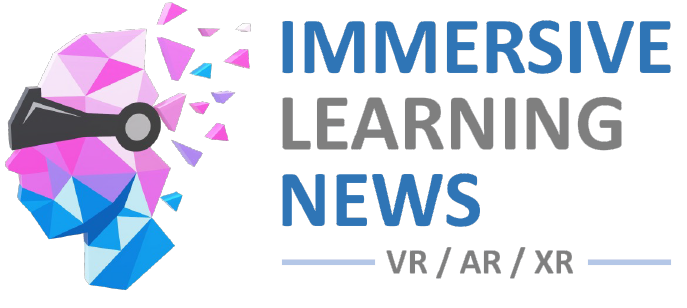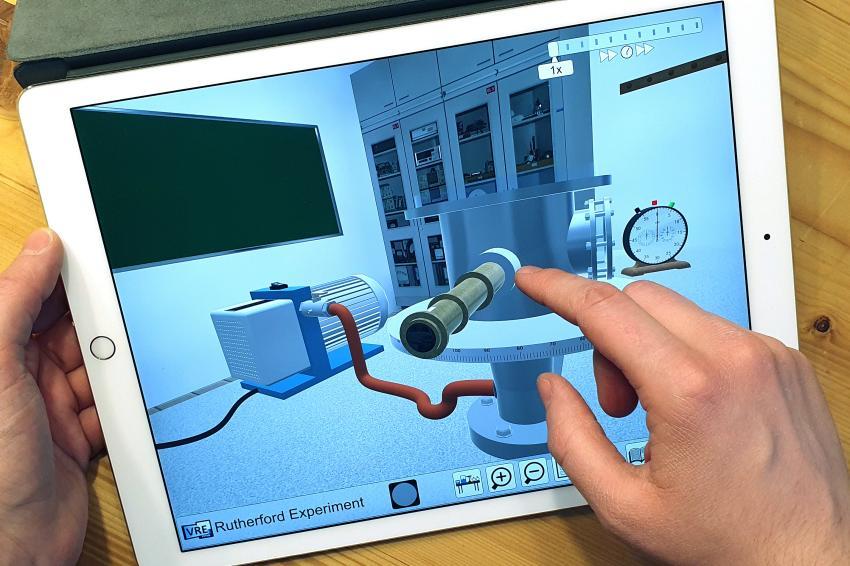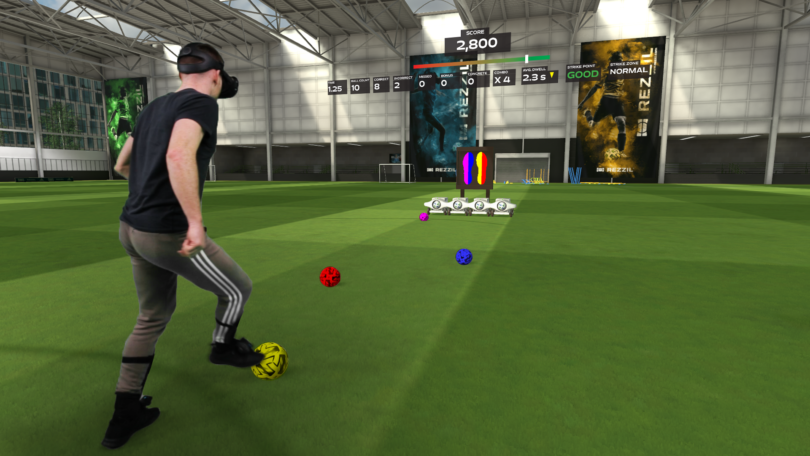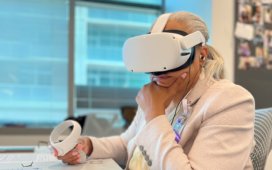With gamers staying home, virtual reality arcades around the world have turned over their powerful computers to a project aimed at helping researchers develop Covid-19 therapies.
The doors to the Rabbit Hole VR are locked, the windows dark. No customers romp around in headsets, captaining simulated pirate ships or shooting zombies only they and their friends can see. But inside this Franklin, Tennessee, storefront important work is going on. A dozen powerful computers are running protein-folding simulations in an effort to understand and ultimately treat coronavirus.
The Rabbit Hole VR is one of more than 30 virtual reality arcades around the globe assisting this research while the pandemic keeps gamers at home. It won’t pay the rent, the owners‘ salaries, or the company’s seven part-time employees, whose hours have been cut to zero. But for married founders Jennifer and Mitchell Poythress, who chafe at home after working nonstop on their startup, there is consolation in contributing something.
The Poythresses launched the Rabbit Hole VR in 2016 as a rental operation, bringing high-end virtual reality experiences to birthday parties, conferences, and team-building events. The next year they opened an arcade in Nashville with six headsets, and soon expanded to nearby Franklin with another 12. Although single players are welcome, the Rabbit Hole caters to groups who navigate a virtual world together. So: a business where people interact physically while wearing equipment on their faces. Pandemic-friendly it is not.
As Covid-19 bore down, the Poythresses switched their business model to reservations-only and ramped up their already strict sanitation regime, going so far as to create a UVC light box to sterilize headsets. Still, in early March, the cancellations started. The company refunded thousands of dollars in bookings. „The partner we use for our reservation system temporarily ran out of money on our account because we were issuing so many refunds,“ Jennifer says.
Midway through that month, the local nonessential business shutdown order came down. The couple had no choice but to sit out the pandemic, hoping that an SBA loan–about which they’ve yet to hear back–would tide them over.
Then they learned about the collaborative simulations in a Facebook community for VR arcade owners and virtual reality developers. „We thought, we are closed and we have all these gaming computers collecting dust,“ Mitchell says. „How can we help?“
The power of many
Folding@home is a distributed computing project run by a consortium of 14 research labs at institutions like Washington University in St. Louis and Sloan Kettering Cancer Center. It crowdsources computing power to perform the massive calculations required to unlock the secrets of proteins and use them to develop therapies for diseases like cancer and Alzheimer’s. Volunteers download software from the Folding@home website; it then runs in the background, using spare graphics processing power to perform calculations.
In February, the consortium turned its attention to coronavirus. „Each simulation you run is like buying a lottery ticket,“ Folding@home’s Covid-19 page explains. „The more tickets we buy, the better our chances of hitting the jackpot.“
Those who volunteer computing power often sign up as teams. There are many thousands of teams, including myriad universities and companies (Boeing, Electronic Arts, Siemens) as well as numerous inscrutables (Idiots on Your Lawn, the Highland Dorks, Snakes on a Complex Plane). Team members rack up credits on the basis of the number of work units their computers complete, and teams are ranked on a leaderboard.
The VR Arcade Community team was launched by Ben Woodford, founder of Fennec Labs, a four-employee developer of virtual and augmented reality experiences based in Stafford, England. „Everyone in the group has been hit pretty hard by this and, as with anything that’s completely out of your hands, it’s understandable that some may be feeling a little helpless,“ Woodford says. Donating computing power „gives arcade owners a way to fight back.“
With their powerful computers and graphics cards, VR arcades are particularly well suited for the project. The VR Arcade Community team has been rising through the competitive ranks, from the 2,000s a couple of weeks ago to somewhere in the 1,400s today. „The points aren’t worth anything. It’s just a fun competition,“ Mitchell says. „You can see how much output our computers are producing, and it is a significant amount.“ (While participants can see how many simulations their computers have run, the leaderboard doesn’t show what those simulations are or how they contribute to the overall project.)
The Poythresses have turned over the 12 computers in Franklin to Folding@home because they are newer than the ones in Nashville. They check in every day from home to make sure everything is running smoothly and there is no overheating. The cost of electricity to run the simulations is about the same, or slightly less, than if customers were playing the games, Jennifer says. For the owners, that is worth it.
„We may not be able to bring in cash right now, but at least we can help find a treatment,“ Jennifer says. „It doesn’t feel so much like we are sitting on our hands waiting for this to pass.“
Quelle:
Foto: Getty Images
https://www.inc.com/leigh-buchanan/virtual-reality-arcade-rabbit-hole-vr-foldingathome-fennec-labs.html




